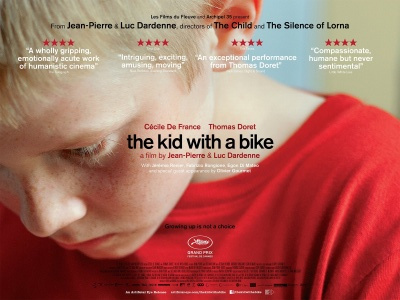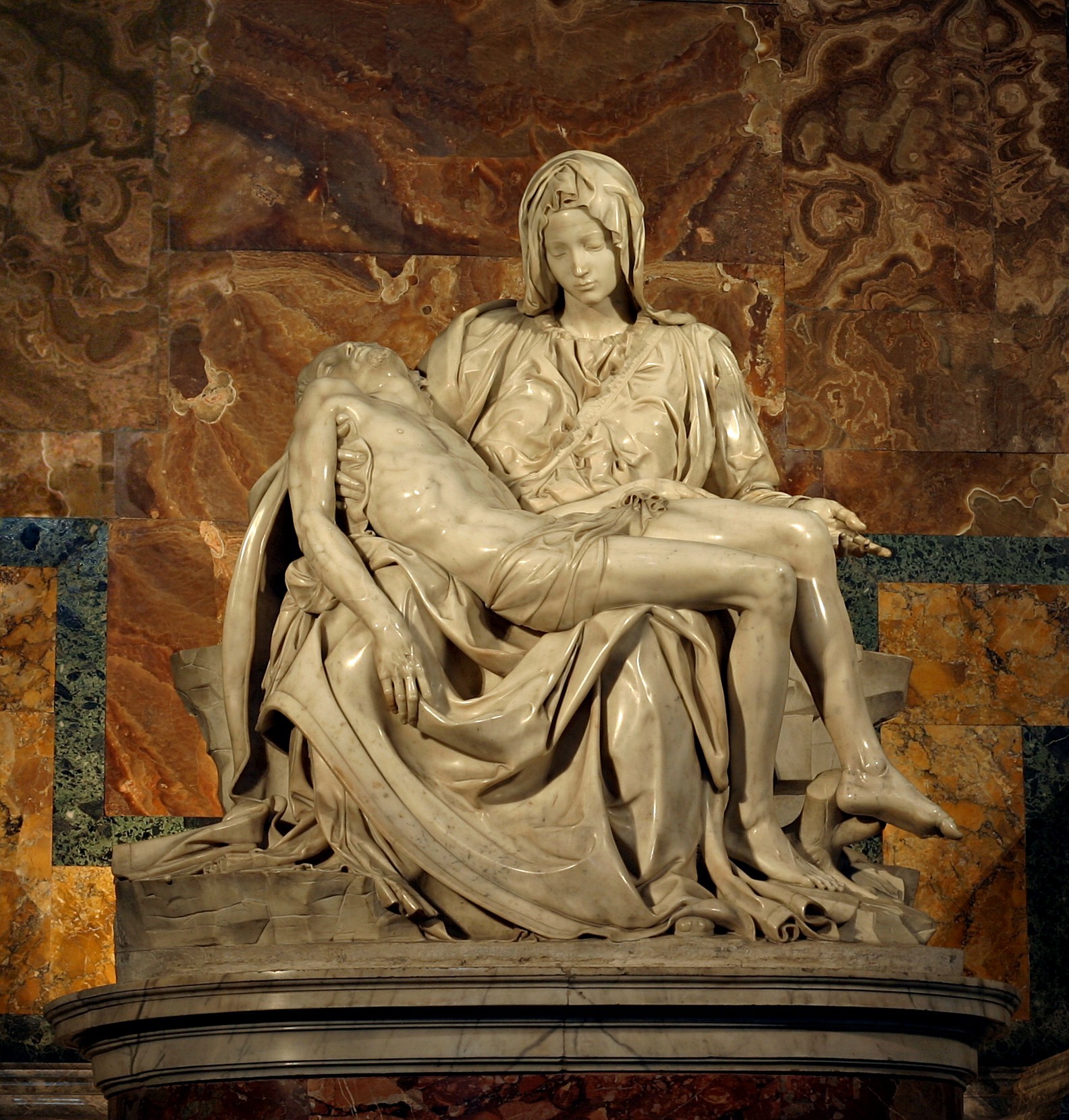
With The Kid with a Bike, Belgian brothers Jean-Pierre and Luc Dardenne directed one of the most critically acclaimed films last year and won the Grand Prix at Cannes in 2011. Film Comment ranked The Kid with a Bike number seven on their Best Films of 2012 list, and it has appeared on several other top-ten lists. The film tells the story of an 11-year-old boy named Cyril, whose father not only abandoned him to a boy's home but also sold Cyril's sole meaningful possession: his bicycle. Refusing to believe his father would do such a thing, Cyril, played with intense authority by newcomer Thomas Doret, begins a journey to find his father and disprove what he knows could not possibly be true. If the story sounds at all like the classic Italian neorealism film Bicycle Thief, it may have echoes but they aren't really similar. The father is noticeably absent in this story, and while the Italian film was primarily a commentary on the bleak post-war economic reality for men and the moral ambiguities that reality leaves them facing, this film is ultimately quite hopefull.

Stubborn, tough, restless, aggressive, and desperately in need of love, Cyril is a character who frustrates us but also garners our sympathy. He's clearly a product of his terrible circumstances. I couldn't help wanting to shout what would of course have been terribly painful for him or any child to hear: "your father does not love you." While attempting to escape from authorities, Cyril literally runs into a local hairdresser, knocking her off a chair in the waiting room to a medical center and subsequently holding onto her with all of his strength. As the men pull Cyril off of her, she says, "You can hold me if you want...but not so tight." The Dardennes acknowledged in an interview in the March/April issue of Film Comment that the mother and child image was meant to be a reverse pieta, an artistic representation of the Virgin Mary cradling the dead Jesus in her arms. While he may be holding her in this particular moment, the Virgin figure will do the carrying later in the film.
 |
| Michelangelo's Pieta (1498-99) |
The Mary figure is goodness and purity to her core. She agrees to take Cyril in on the weekends, she drives him to see his father, she provides a safe, loving home for him and never expects anything in return. More importantly, she puts up with his poor manners, his aggressiveness, his disobedience, and his inability to return her love. She is a lovely human being, and we can't help but wonder why she doesn't give up. It's not as if she owes him anything. Of course, we know and the Dardennes know that there are people like her in the world. Some of us aspire to be like them but most of us fall short.
I tend to be drawn to darker stories: crime dramas, post-apocalyptic zombie tales, classic- and neo- films noir, and bleak endings. And there are plenty of these types of stories today. Bleak stories are so prevalent that I wonder if the phrase "Hollywood ending" is anachronistic. Anyway, it's refreshing to see a film so rife with Christian symbols and messages--when it's presented in the Dardenne's characteristic neorealism, subtlety (no heavy-handed symbols here), and anti-melodrama (at least to a degree). But The Kid with a Bike uses Christian symbolism not so much to endorse or promote Christianity--or any religion for that matter--but to comment on the possibility of hope, love, redemption, and forgiveness in an increasingly secular world. The Dardennes were raised Roman Catholics but their films probably owe more to French filmmaker Robert Bresson (also raised Catholic but he famously called himself a "Christian atheist"--whatever that means) than to Catholicism. The Kid with a Bike has its descent into hell (or maybe hells plural--I suppose there a few of them for Cyril), its ascent from that world into the light of goodness and truth, a world where a kid can ride his bike with his mother. The sun shines and we know that the world isn't always a good place, but sometimes it can be.

